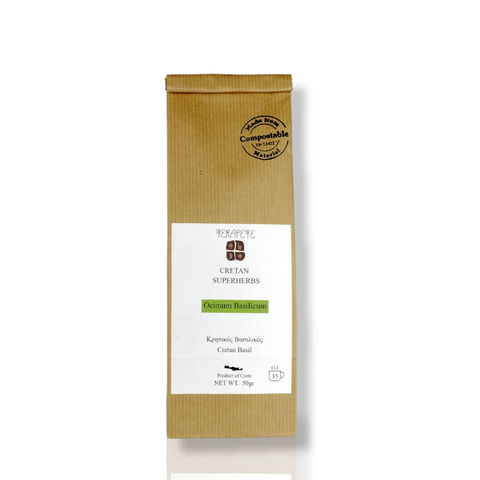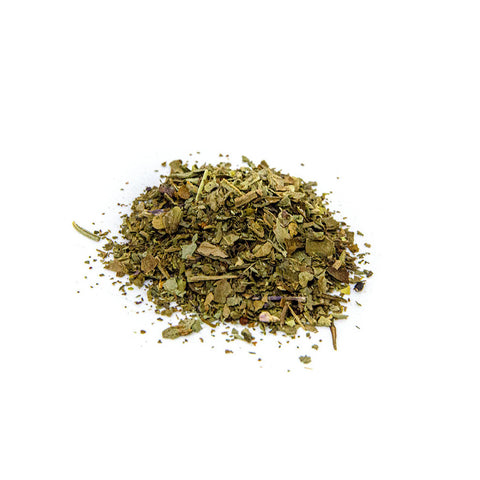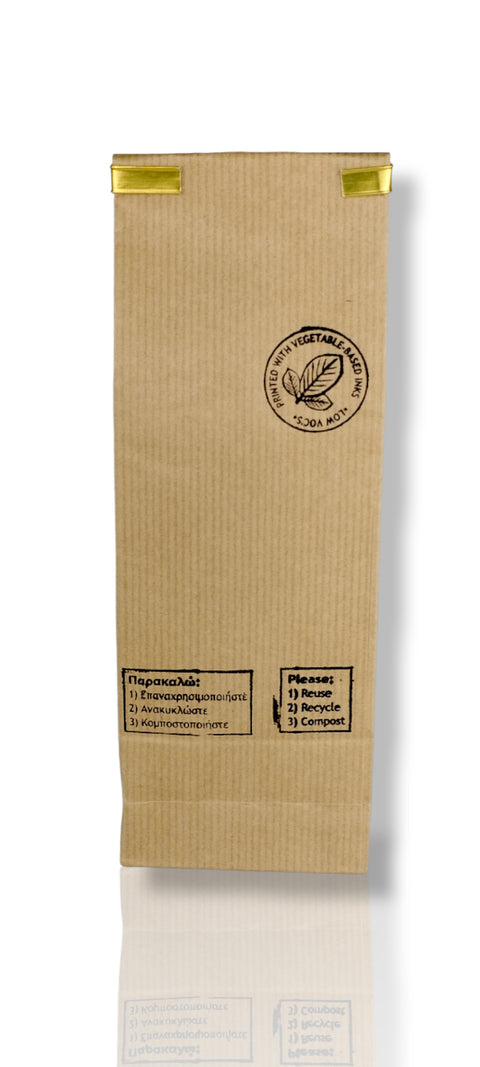


Terapete
Κρητικός Βασιλιkός (Ocimum basilicum)
Basil (Ocimum basilicum) is perhaps the King of all culinary and medicinal herbs. Used for more than 5,000 years, basically leaves find prominent mention in many cuisines and medicinal treatments alike. The list of health benefits accrued from this plant is very long. It is known to work as an anti-depressant and helps overcome stress.
Basil tea improves memory, fights mental fatigue, and regulates hormone production and the menstrual cycle. It is helpful in countering the effects of jet lag, as it is effective in combating intestinal parasites, fever, and skin infection. It helps gout and arthritis by stimulating the immune system and lowering the level of uric acid in the body.
Tea infusion made from basil leaves are also highly beneficial against pain and inflammation, especially that which is caused by arthritis.
It is also used for treating cough (as an expectorant), bronchitis, and other respiratory infections. Basil leaves ground into a poultice are excellent for healing wounds, and relieving itching and inflammation from bug bites and even burns owing to its anti-inflammatory, antiseptic, and analgesic properties.
Use
Today, basil is one of the most important herbs in many cultures and cuisines, including Italian, Indian, Thai, and Vietnamese.
Basil leaves can be used in a ton of ways: with sautéed vegetables, in sauces, to flavor meat, fish, and stews, as part of dressings, in herbal teas, to flavor liqueurs, and even to make mixed drinks.
